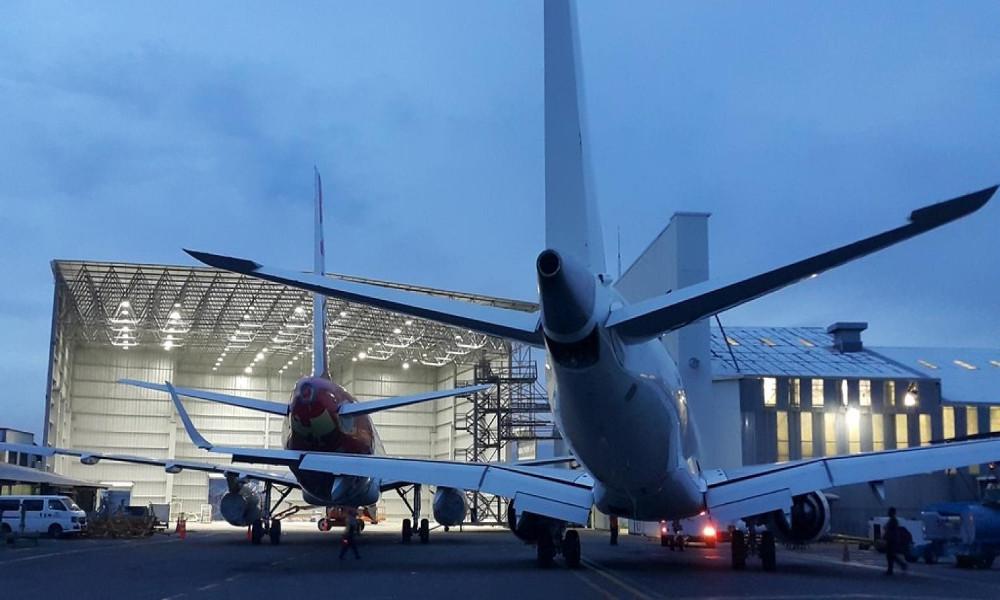Airborne Steadies MRO With Cargo Work, Coopesa Hopes For Spring Checks

U.S domestic flights have plateaued at a very partial recovery level, and U.S. flights to Latin America lag behind. This has brought some relief to independent shops in the U.S., but less to the Latin shops that support and rely on work from U. S. carriers. As always, it helps to have some in-house business to keep the lines running.
“We have continued to experience some growth in aircraft maintenance demand at Airborne Maintenance and Engineering Services, particularly within the past few months,” summarizes Todd France, president of Airborne M&E. France acknowledges that U.S. passenger airlines have a long road of recovery ahead, but says most appear to be preparing for future air travel and thus increasing maintenance workloads.
And, fortunately, Airborne’s cargo airline customers include its sister companies, ATSG subsidiaries ABX Air, Air Transport International and Omni Air, which have consistently needed aircraft maintenance to meet increased demand due to the COVID-19 pandemic.
So far, the MRO has experienced growth in aircraft storage, engine preservation, aircraft reactivation and heavy maintenance C check preparation. France anticipates that airworthiness directive maintenance will increase in the future as airlines and FAA take every precaution to ensure healthy passengers and to better prepare for future situations like the current pandemic.
The work so far has enabled Airborne to retain all its employees through the pandemic. “I remind our staff constantly that we are extremely fortunate to serve as an essential provider to support air cargo and passenger segments that have been responsible for delivering needed goods and people to their homes across the globe,” France says. He adds that customers have been flexible to ensure the company will be positioned to meet needs when air travel returns.
Changes in Airborne operations have included the common precautions: deep cleaning and disinfection protocols; virtual meetings; temperature taking, and mask mandates. France expects many of these changes will be around for a long time.
To the south, the partial revival in U.S. domestic passenger flights has not so far been of much help to Costa Rica’s Coopesa. The Latin MRO traditionally specialized in narrowbody aircraft MRO, with seven lines for Airbus A320s, Boeing 737s and Embraer 190s. Coopesa Sales and Marketing Director Rodolfo Solis says he is not seeing any recovery in demand for maintenance at his three hangars yet. Instead, “We expect a slow recovery in the second quarter of 2021,” Solis adds.
And the first type of maintenance demand he expects to recover should be lease returns, one of Coopesa’s other specialties.
The MRO has not received any government aid and thus has been able to retain only 60% of its 848 employees. However, “If business picks up soon, we will need to rehire personnel,” he says.
Solis thinks the virus is going to change things for both shops and airlines for quite a while. “It will be a harder market,” he says. He predicts MROs will offer fewer services both during and after recovery from the virus.





